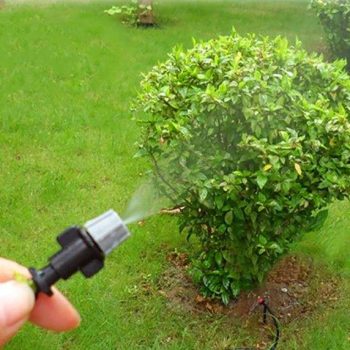
[ad_1]
Guava farming is a major agro-based industry in Bangladesh, providing a steady source of income for farmers. However, the traditional methods of guava farming have caused a negative impact on the environment, leading to soil degradation, deforestation, and water scarcity. To overcome these challenges, there is a growing need for sustainable guava farming practices that not only ensure the long-term benefits for farmers but also protect the environment.
Sustainable guava farming refers to the use of environmentally friendly methods in the production of guava crops, which prioritize conservation and the prevention of environmental degradation. To achieve sustainable guava farming, several measures can be taken to ensure long-term benefits for both farmers and the environment.
One of the key steps towards sustainable guava farming is by using organic fertilizers and biopesticides. These methods not only protect the soil and water sources from contamination but also promote healthy plant growth. Organic fertilizers, made from natural materials like manure, farm waste, and compost, provide a natural source of nutrients for the plants without adding harmful chemicals to the soil. Biopesticides, on the other hand, use naturally occurring microorganisms or extracts from plants to control pests and diseases, minimizing the environmental impact of traditional insecticides.
Another sustainable guava farming practice is intercropping. As guava trees grow slowly in the initial stages, farmers can plant other crops such as vegetables, legumes, or fruit trees in the same field. Intercropping with other crops not only maximizes the use of resources but also reduces pest and disease infestation while protecting soil fertility.
Additionally, agroforestry practices can be employed in guava farming, where farmers plant trees in between guava trees to maintain the soil’s moisture level, prevent soil erosion, and reduce carbon emission. Agroforestry improves biodiversity in the farm, provides shade for the guava trees, and also produces other products for farmers such as fruits, timber, and fuelwood.
However, sustainable guava farming would not be possible without the support and empowerment of farmers. Capacity building and education on sustainable guava farming practices should be offered to farmers to ensure that they adopt environmentally sustainable practices while increasing their income potential.
In conclusion, sustainable guava farming in Bangladesh is crucial to both the environment and the livelihoods of farmers. Implementing sustainable guava farming practices such as organic fertilizers and biopesticides, intercropping, agroforestry, and farmer empowerment will not only reduce the negative impact of guava farming on the environment but also contribute to the long-term benefits of both farmers and the environment.
[ad_2]























